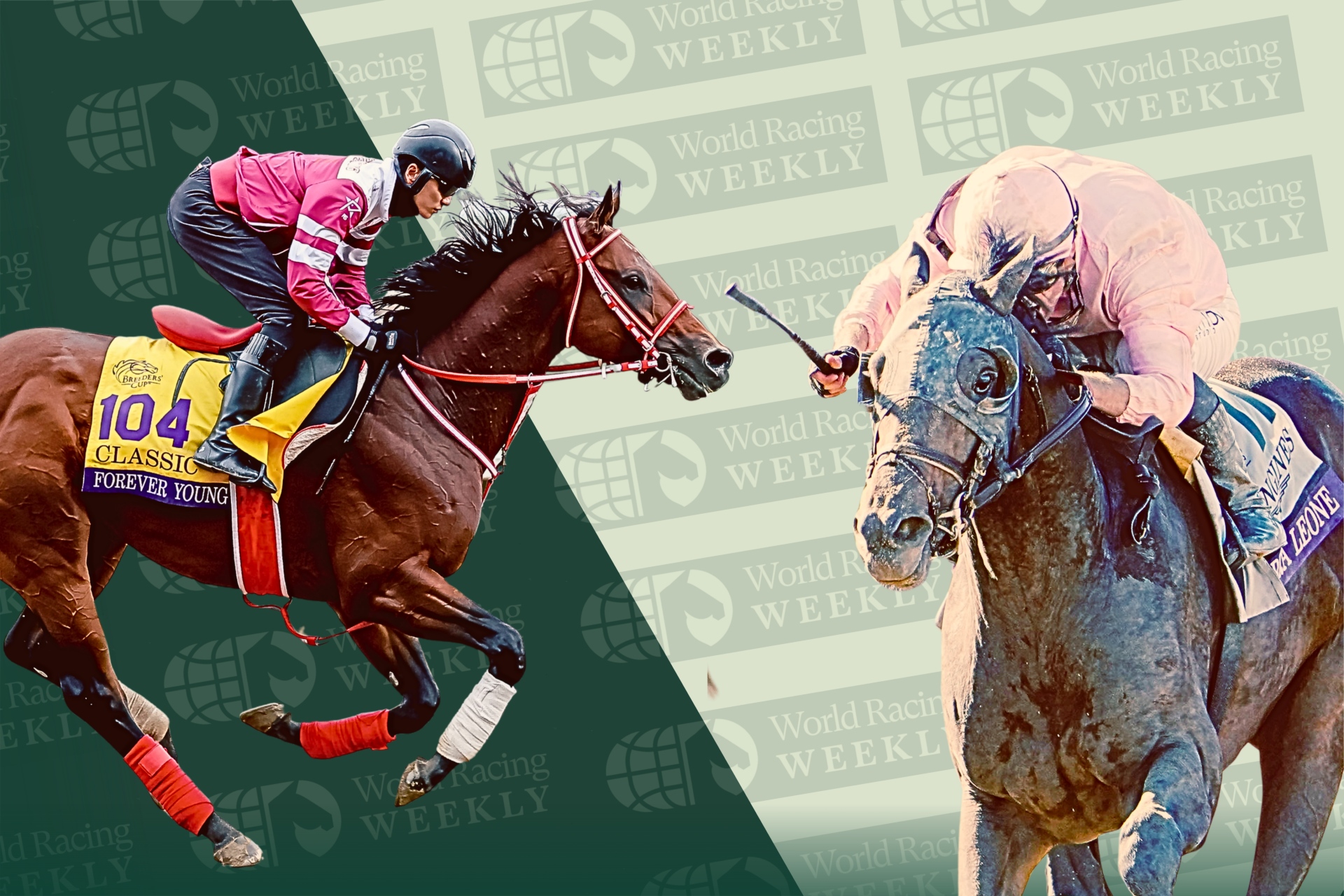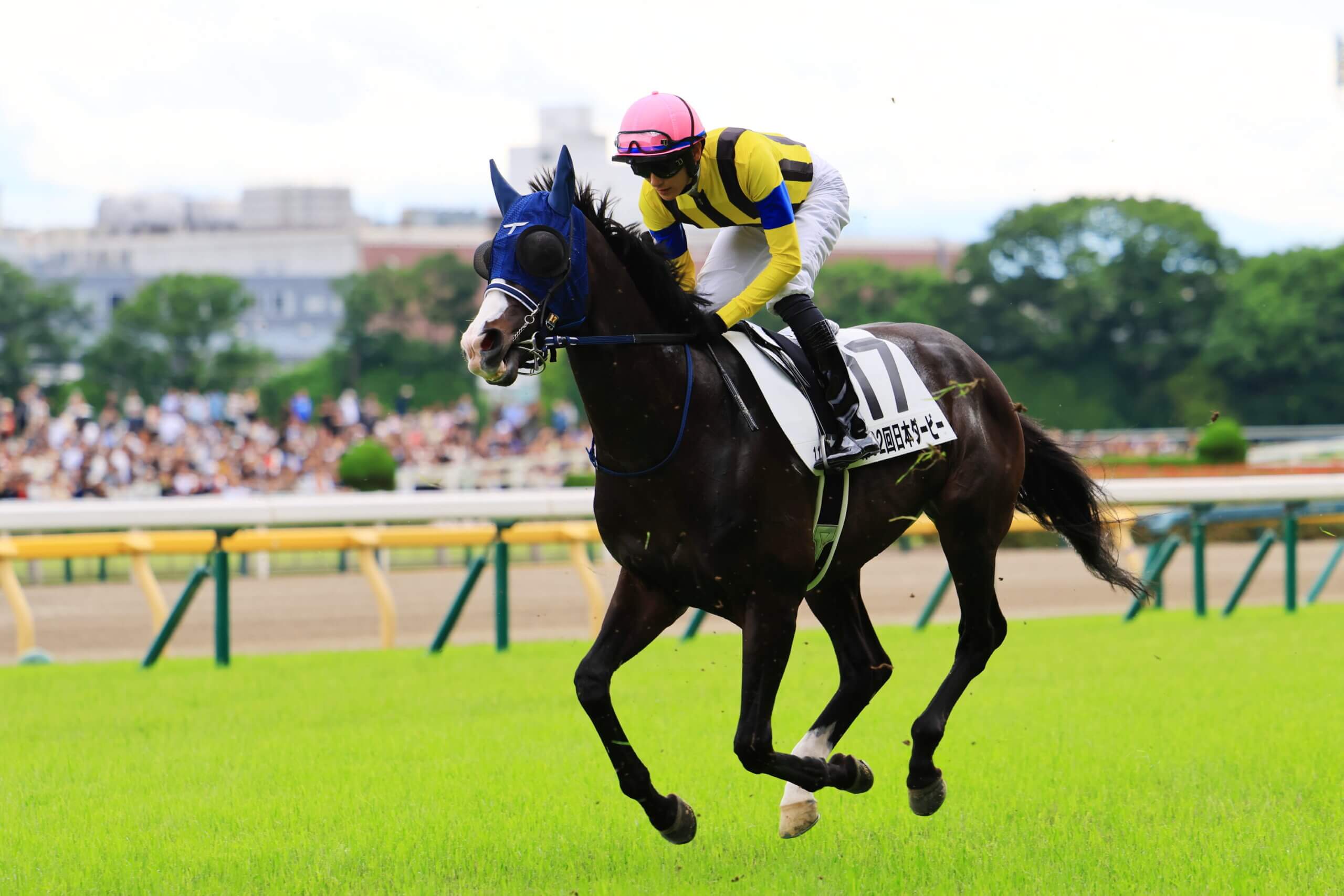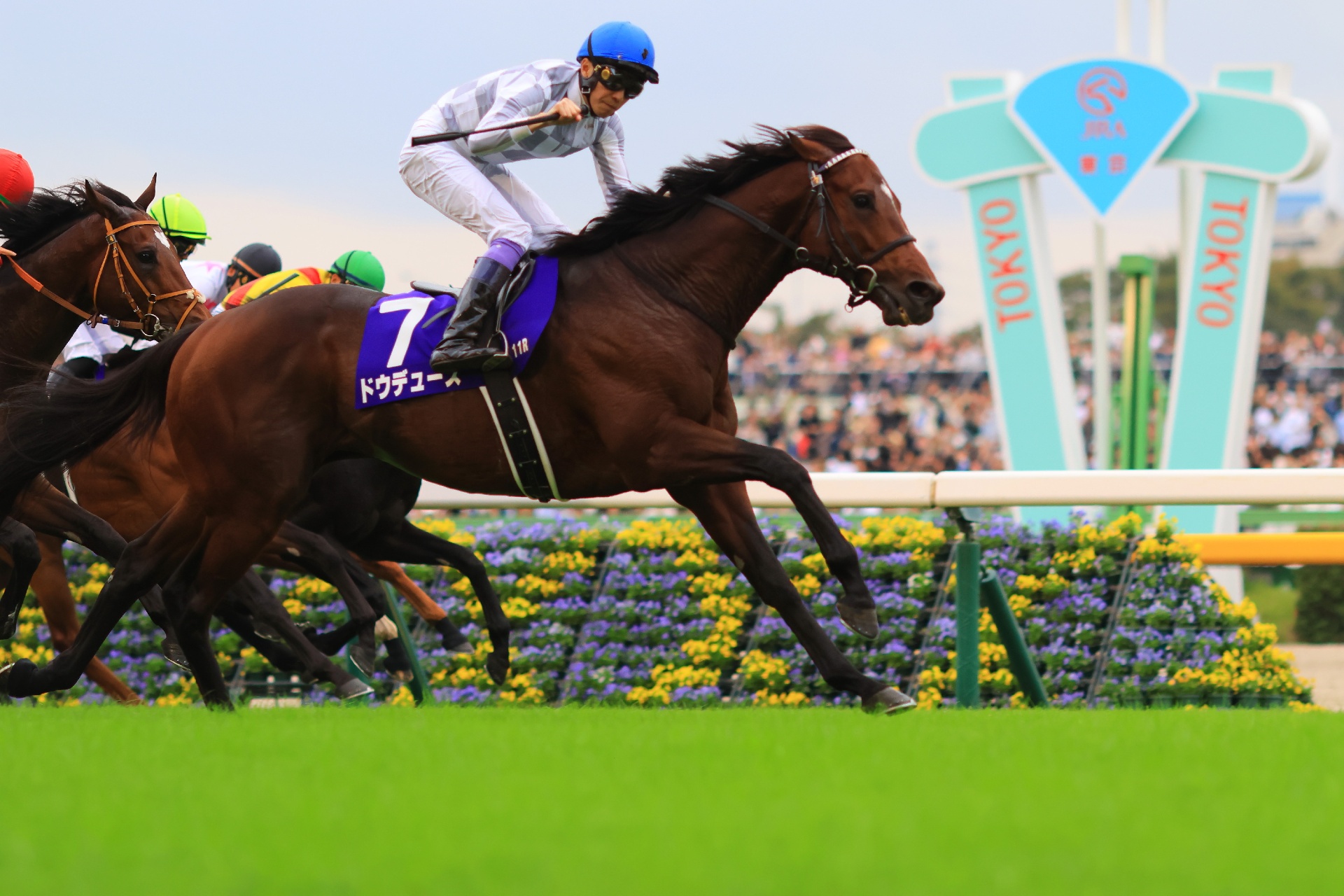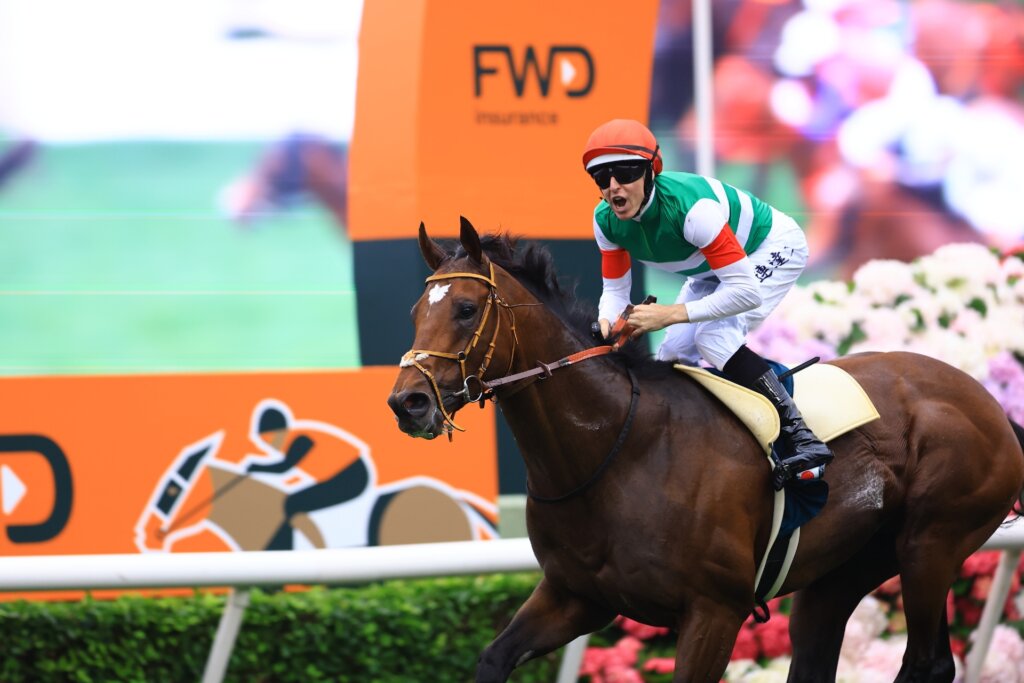
The third three-year-old to beat his elders in five years, Masquerade Ball claimed Sunday's G1 Tenno Sho (Autumn) as jockey Christophe Lemaire continued his recent hot form.

One of the most anticipated Breeders' Cup Classics in years may have lost its favourite, but the clash of Fierceness, Sierra Leone, Forever Young and Journalism at Del Mar still promises high drama.

A star-studded Tenno Sho (Autumn) pits Japan’s best middle-distance horses against a pair of emerging three-year-olds, as Christophe Lemaire chases a remarkable sixth win.

72,485 fans were in attendance at Tokyo Racecourse to cheer home star five-year-old Do Deuce and legendary jockey Yutaka Take as wildly popular winners of the G1 Tenno Sho Autumn.
The Tenno Sho (Autumn) – the “Emperor’s Prize” – is Japan’s premier middle-distance race and one of the sport’s true benchmarks. Alongside its 3200-metre spring counterpart it carries royal tradition and prestige unmatched on the JRA calendar.
Since opening to three-year-olds in 1987 it has defined the 2000-metre division on Tokyo’s exacting turf. Recent champions such as Almond Eye, Efforia, Equinox and Do Deuce all went on to claim Horse of the Year honours.
This 172nd running brings together 15 runners – seven of them Group 1 winners – headed by returning stars Tastiera and Meisho Tabaru, and two exciting three-year-olds Masquerade Ball and Museum Mile.

Favorites dominate but depth rewards precision
Seven of the last ten winners started as race favorites, yet the minors often break wide open. Runners sixth or lower in betting have filled eleven of the past twenty placings including 8th and 9th market choices finishing second and third last year.
Inside gates remain gold
The Tokyo 2000m start turns quickly and history reflects it. All ten winners and 25 of the past 30 placegetters have jumped from gates 1–9. Only two horses from double-digit stalls have managed a top-three finish in the past decade.
Younger legs finding their stride
No horse older than five has placed in the Tenno Sho (Autumn) for ten straight years. Three-year-olds have won twice in the last five editions – Efforia (2021) and Equinox (2022) – each later crowned Horse of the Year. Still the overall record remains demanding with only four 3YO winners since 1987.
Angle: Yutaka Take’s timeless touch
Few riders own the Tenno Sho (Autumn) like Yutaka Take and his partnership with Meisho Tabaru adds another layer of history. Take’s seven previous wins stretch back to 1989 with Super Creek and most recently last year aboard Do Deuce. Now at 56 he aims for an eighth Emperor’s Prize on a horse whose style mirrors his own patience and precision.
Meisho Tabaru returned from Dubai to dominate the G1 Takarazuka Kinen by three lengths showing a tougher more mature version of the Gold Ship temperament. His cruising speed and resilience make him the logical front-half controller in a field light on confirmed leaders. Drawn wide but armed with tactical pace he can slide across early, find rhythm and rely on Take’s trademark poise to ration that power.
If the track plays fair and the tempo is genuine Meisho Tabaru has every chance to complete Japan’s mid-season-to-autumn double and give Take another defining moment at Tokyo.
Selections: #13 Meisho Tabaru, #9 Museum Mile, #4 Sol Oriens, #8 Ho O Biscuits
Angle: Proven older class over youthful promise
It is rare for a three-year-old to win the Tenno Sho (Autumn). Efforia and Equinox managed it but they were exceptional colts who went on to define their generations. This year’s pair Masquerade Ball and Museum Mile are high quality yet the question is whether they are of that rare standard.
I’m leaning to the proven older horse Tastiera. He was runner-up in this race last year less than a length behind Do Deuce and his Hong Kong form since – a third behind Romantic Warrior and a QEII Cup win – confirms his world-class ability. The horse has had problems in the lead-up but this could be a case of “in Hori we trust”: trainer Noriyuki Hori knows how to peak a horse for this target and Damian Lane’s tactical timing suits Tokyo’s long run home.
Selections: #5 Tastiera, #3 Justin Palace, #11 Shirankedo, #7 Masquerade Ball

Angle: Front-running value at Tokyo
Ho O Biscuits brings an honest Tokyo record (6:1-2-2) from 1600m to 2000m and looks a likely pace influence again. From gate eight he can spear to the rail and control the rhythm especially with Meisho Tabaru drawn wider. He was only caught late in this race last year and arrives in solid form after a Group 2 second.
At current odds he shapes as a legitimate each-way hope in a race that has produced big exotics despite short-priced winners.
Selections: #7 Masquerade Ball, #8 Ho O Biscuits, #9 Museum Mile, #11 Shirankedo
Angle: Lemaire and the new generation
Masquerade Ball is the headline three-year-old and the natural focal point for Christophe Lemaire’s pursuit of a sixth Tenno Sho (Autumn) victory. The colt’s profile mirrors recent youthful champions Efforia and Equinox – second in the Tokyo Yushun and now meeting older horses for the first time on the same course and distance.
He has already proven his class, finishing in the placings in both spring classics and showing a decisive turn of foot at Tokyo over 1800 metres. Lemaire’s decision to take the ride after back-to-back Group 1 wins signals confidence. The colt returns from a long break but reports from Miho suggest he has strengthened and relaxed in his work.
Selections: #7 Masquerade Ball, #13 Meisho Tabaru, #6 Brede Weg, #9 Museum Mile
Subscribe to the idol horse newsletter
New to Idol Horse? Sign Up
By continuing, you are agreeing to the User Agreement and acknowledge that you understand the Privacy Policy.